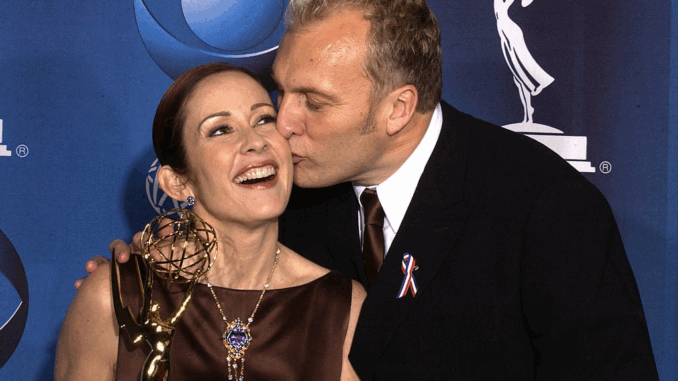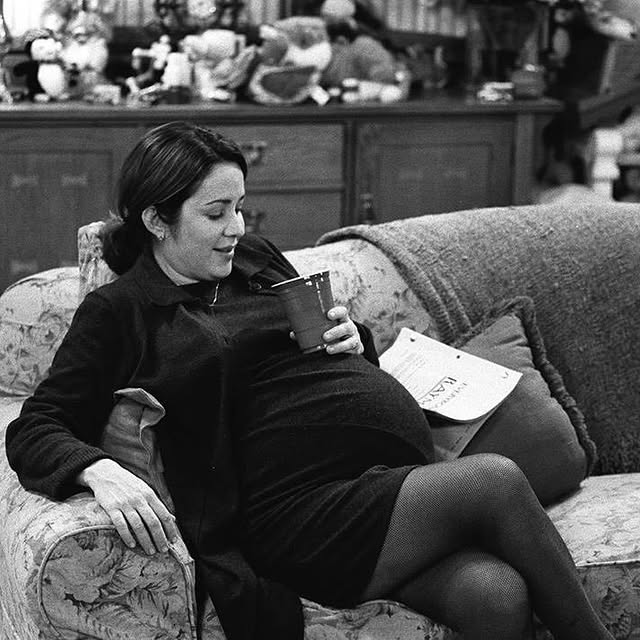
If you grew up watching Everybody Loves Raymond or The Middle, you know Patricia Heaton as the quintessential TV mom — warm, witty, and sometimes hilariously overbearing. But here’s the twist: Patricia Heaton says that playing a TV mom is the complete opposite of what real motherhood feels like. Curious? Let’s dive into why the two worlds couldn’t be more different.
The Iconic TV Mom: Who Is Patricia Heaton?
Before we unpack her motherhood insights, let’s take a quick look at Patricia Heaton’s career. She’s a two-time Emmy winner known for portraying relatable, sharp-witted moms who juggle chaos with humor. From Debra Barone on Everybody Loves Raymond to Frankie Heck on The Middle, Heaton has been a household name for decades.
What Makes a TV Mom?
TV moms often come with a script full of jokes, flawless timing, and, let’s be honest, a bit of exaggeration. They’re the perfect blend of patient, loving, and often hilarious. But this picture-perfect portrayal is carefully crafted for entertainment, not reality.
Why Patricia Says TV Mom Life Is Opposite to Real Mom Life
1. Controlled Chaos vs. Real Chaos
On TV, every messy moment is scripted and timed to make you laugh or feel something. Real motherhood? It’s nonstop chaos with no pause button. “On set, I knew when the chaos ended,” Heaton explains. “At home, chaos never really ends.”
2. Perfect Timing vs. Real-Time Reactions
TV moms deliver lines with impeccable timing and flawless expressions. But real moms? They juggle interruptions, tantrums, and tears all at once, often without a chance to pause and breathe.
3. Camera-Ready vs. Exhausted and Messy
Patricia jokes that she never had to worry about spit-up stains or random tantrums on set — the camera wasn’t rolling during those moments. Real-life motherhood doesn’t get commercial breaks or retakes.
The Emotional Divide: Acting vs. Feeling
While acting requires you to portray emotions on cue, real motherhood is raw and unpredictable. “You can’t fake the exhaustion, the love, or the worry,” Heaton says. “Motherhood is deeper and messier than any script could capture.”
The Myth of the Perfect TV Mom
TV moms often set unrealistic standards. They appear calm under pressure and always find witty solutions. Heaton admits this puts pressure on real moms who compare themselves to these flawless portrayals.
The Truth About Being a Real Mom
Motherhood is a rollercoaster. It includes sleepless nights, tough decisions, and moments of doubt. Unlike the scripted version, there’s no canned laughter or applause to ease the stress.

How Patricia Balances Fame and Family
Despite her fame, Patricia Heaton prioritizes family. She openly talks about the challenges and joys of raising four sons off-screen, balancing her career with the realities of parenting.
Lessons From Playing a TV Mom
Playing a TV mom taught Patricia the value of humor and patience. These lessons helped her navigate real motherhood, even if the two experiences felt worlds apart.
The Role of Comedy in Parenting
Patricia highlights that laughter is essential in both TV and real-life parenting. Humor helps diffuse tension and keeps families connected, a universal truth she embraces deeply.
Patricia’s Advice to Real Moms
She encourages moms to let go of perfection, embrace the chaos, and find joy in the everyday mess. “If you try to be a TV mom in real life, you’re setting yourself up for frustration.”
Comparing TV Family Dynamics to Real Families
TV families often wrap up conflicts in 22 minutes. Real families, Patricia notes, face ongoing challenges that don’t resolve neatly or quickly.
Why Authenticity Matters in Parenting
Authenticity is key. Patricia believes that showing vulnerability and imperfection strengthens family bonds far more than scripted perfection ever could.
The Impact of Media on Motherhood Expectations
Patricia warns about media’s influence on shaping unrealistic motherhood ideals. She advocates for honest conversations to normalize struggles.
Patricia Heaton’s Own Motherhood Journey
Through candid interviews, Patricia shares how her own experiences shaped her parenting style—less like TV, more like real life, filled with mistakes and unconditional love.
Why Patricia Loves Playing Moms on TV Anyway
Despite the differences, Patricia treasures playing TV moms because it allows her to highlight family values and laughter in a way that resonates with audiences.
The Power of Relatable Characters
Her roles have connected millions of viewers to the humor and heart of family life, showing that even scripted stories can teach us something about ourselves.
Final Thoughts: Real Moms Deserve Real Praise
Patricia Heaton’s insights remind us all that real motherhood is messy, challenging, and beautiful in its imperfections. TV moms might make us laugh, but real moms deserve all the applause.
Conclusion
Patricia Heaton’s journey between the worlds of TV motherhood and real-life parenting offers a refreshing perspective. While her TV roles bring laughter and heart to millions, she openly admits that no script can capture the true essence of being a mom. Real motherhood is unpredictable, exhausting, and deeply rewarding—far from the polished scenes we see on screen. Embracing this reality with humor and honesty, as Patricia does, is what truly makes a mom great.
5 Unique FAQs
Q1: What’s Patricia Heaton’s biggest difference between TV mom and real mom?
A: The biggest difference is that TV mom life is scripted and controlled, while real mom life is chaotic and unpredictable.
Q2: Did Patricia Heaton ever struggle balancing acting and motherhood?
A: Yes, she openly talks about juggling her career with the demands of raising four boys.
Q3: How has playing TV moms influenced Patricia’s parenting style?
A: It taught her the power of humor and patience but also made her appreciate real motherhood’s messiness.
Q4: Does Patricia think TV moms set unrealistic standards?
A: Absolutely. She warns real moms not to compare themselves to the perfect portrayals on screen.
Q5: Why does Patricia still enjoy playing moms on TV?
A: Because it lets her highlight family values and make people laugh, connecting with audiences on a deeper level.
